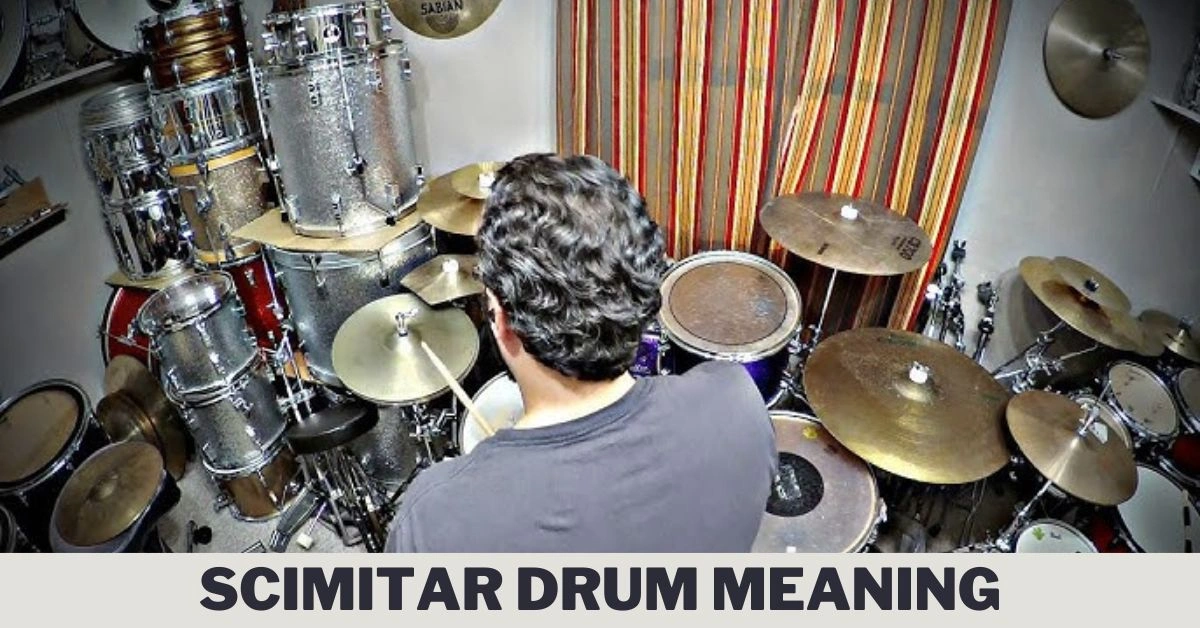The scimitar drum is a fascinating and multifaceted element within various cultural and musical contexts. Its distinct shape and unique symbolism make it a subject of interest for both scholars and enthusiasts. This essay delves into the scimitar drum meaning, exploring its historical significance, cultural relevance, and role in contemporary music.
Historical Background of the Scimitar Drum
Origins and Evolution
The scimitar drum, often recognized by its crescent-shaped structure resembling a scimitar sword, has a rich history that spans several centuries. Its origins can be traced back to ancient civilizations where drums played a crucial role in rituals and communication. The scimitar drum meaning in these early societies was deeply intertwined with ceremonial practices and social functions.
Early Uses and Symbolism
In ancient cultures, drums were more than mere musical instruments; they were symbolic artifacts that represented power, divinity, and unity. The scimitar drum, with its unique design, was particularly significant in certain regions. Its crescent shape was believed to symbolize protection and strength, aligning with the scimitar’s role as a weapon in warfare.
Cultural Significance of the Scimitar Drum
In Middle Eastern Cultures
In the Middle East, the scimitar drum has been an integral part of musical traditions for centuries. The scimitar drum meaning in this context is often associated with historical events and cultural rituals. For example, during traditional celebrations, the drum is used to convey messages, honor deities, and mark significant moments.
Influence on Other Cultures
The scimitar drum’s influence extends beyond the Middle East. As it spread to other regions through trade and migration, its meaning evolved and adapted to different cultural contexts. In some cultures, the scimitar drum became a symbol of cultural exchange, representing a blend of various musical traditions and practices.
The Scimitar Drum in Contemporary Music
Modern Adaptations
In contemporary settings, the scimitar drum has undergone various adaptations. While its traditional uses remain prevalent, modern musicians have embraced the drum for its unique sound and aesthetic appeal. The scimitar drum meaning in modern music often emphasizes innovation and experimentation, as artists incorporate it into diverse musical genres.
Influence on Popular Music
The incorporation of the scimitar drum into popular music has introduced new audiences to its distinctive qualities. Artists across genres use the drum to add a unique texture to their compositions, showcasing its versatility. The scimitar drum meaning in this context reflects its role as a bridge between traditional and contemporary music.
The Symbolism of the Scimitar Drum
Cultural Symbolism
The scimitar drum is imbued with rich symbolism that varies across different cultures. In many traditions, it represents strength, protection, and unity. Its crescent shape is often associated with the moon and its phases, symbolizing change and continuity. Understanding the scimitar drum meaning requires an appreciation of these symbolic associations and their significance in various cultural narratives.
The Drum as a Ritual Object
In ritualistic settings, the scimitar drum holds a special place. It is often used to invoke spiritual energies and facilitate communication with the divine. The scimitar drum meaning in this context underscores its role as a sacred object that bridges the physical and spiritual realms.
Crafting the Scimitar Drum
Traditional Craftsmanship
Crafting a scimitar drum involves intricate techniques that reflect its cultural importance. Traditional artisans use specific materials and methods to create drums that resonate with historical significance. The scimitar drum meaning is embedded in the craftsmanship, with each drum representing a blend of artistry and cultural heritage.
Modern Innovations
Contemporary drum makers have introduced new materials and techniques to enhance the scimitar drum’s design and functionality. These innovations maintain the drum’s traditional essence while adapting it to modern preferences. The scimitar drum meaning in modern craftsmanship reflects a balance between preserving tradition and embracing innovation.
The Scimitar Drum in Rituals and Ceremonies
Traditional Rituals
In many cultures, the scimitar drum is a central element of traditional rituals. Its sound is believed to invoke spiritual forces and facilitate communication with the divine. The scimitar drum meaning in these rituals is often associated with the drum’s ability to connect the earthly and spiritual realms.
Contemporary Ceremonies
Modern ceremonies also incorporate the scimitar drum, though its role may vary. In some cases, it is used to honor cultural heritage and celebrate traditional practices. The scimitar drum meaning in contemporary ceremonies reflects its enduring significance as a symbol of cultural identity and continuity.
The Scimitar Drum in Popular Culture
Media and Entertainment
The scimitar drum has made its way into popular culture through various media and entertainment platforms. Its distinctive appearance and sound have captured the imagination of audiences worldwide. The scimitar drum meaning in popular culture often highlights its exotic appeal and connection to historical narratives.
Representation in Art
Artists have also embraced the scimitar drum as a subject of artistic expression. Its unique shape and symbolism make it a compelling motif in visual art. The scimitar drum meaning in art reflects its role as a symbol of cultural richness and artistic inspiration.
Conclusion
The scimitar drum is a remarkable instrument with a rich history and diverse cultural significance. From its ancient origins to its contemporary adaptations, the scimitar drum meaning has evolved while retaining its symbolic essence. Understanding the scimitar drum involves exploring its historical context, cultural relevance, and impact on modern music and art. As we continue to appreciate and explore the scimitar drum, its meaning and significance will undoubtedly continue to resonate across cultures and generations.
Read More: Understanding Legal and Financial Aspects of Real Estate Transactions

